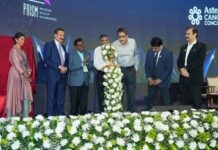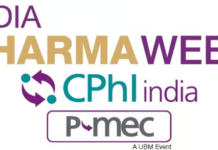Bangalore, September 21, 2016: If you thought Alzheimer’s only affected the elderly, of late there have been cases of early-onset of Alzheimer affecting young adults in the age group of 30-40. According to the Alzheimer’s Association, early onset of the disease has been seen among 5 percent of the Alzheimer’s affected population. Even though it is a rare case, the doctors say that due to the exponential growth in Alzheimer’s patients especially in India, it is extremely critical to be aware of Alzheimer and its symptoms.
“Early onset Alzheimer mostly affects young adults with either a family history in Alzheimer or dementia or due to specific mutations. Although early-onset of Alzheimer has no cure, proper diagnosis and right kind of treatment can go a long way in slowing the process of Alzheimer,” said Dr. Anil Ramakrishna, Consultant Neurologist, Columbia Asia Hospital, Hebbal. With World Alzheimer’s Day on 21st September it is critical to create a mass awareness on this subject.
According to estimates of the Alzheimer’s and Related Disorders Society of India (ARDSI), there were around 3.7 million Indians with dementia in 2012. These numbers are expected to cross seven million by 2030, imposing a huge financial as well as societal burden on the country.
“Dementia is not a normal part of aging as many people believe. It is a neurological disorder and it has a varied set of symptoms. These symptoms are often overlooked as family members mistake them for age-related forgetfulness. Being aware and watchful for symptoms and seeking medical advice may enable an early diagnosis, paving the way for timely treatment that can slow down the symptoms and mitigate distressing problems in some patients,” added the doctor.
Finding it difficult to remember things, asking the same questions repeatedly, having trouble paying bills or doing simple math problems, getting lost, losing things or putting them in odd places are some of the early signs and symptoms that one can look out for. Later signs of Alzheimer’s include forgetting how to take care of personal hygiene, being confused about time, place and people, forgetting names and wandering away from home.
Here are a few tips by Dr. Anil that can help reduce the risk of acquiring Alzheimer’s disease:
· Physical Exercise: Regular physical exercise can reduce the risk of acquiring Alzheimer’s disease. Brisk walking, running, cycling, indulging in sports like swimming etc. throughout one’s life can help reducing the risk.
· Mental Exercise: People with greater mental agility and activity are believed to be at lower risk of acquiring dementia. It is very essential that people continue to stimulate the brain by solving puzzles, reading and writing and indulging in peer group activities.
· Eat Brain Healthy food: Food rich in omega 3 fatty acids are recommended to keep the brain healthy. Including walnuts, fish, soybean and flax seeds in your diet will help reduce the risk. A research published recently in the journal Neurobiology of Aging, concluded that coffee consumption can be a deterrent to Alzheimer’s. Coffee’s effects on the central nervous system may have to do with this link.
· Be watchful for symptoms: Dementia starts with mild symptoms of memory loss. A degenerative brain disorder like Alzheimer’s cannot be reversed or cured. But, its progression can be delayed, if it is diagnosed early. Therefore, it is important for the family members to be alert about spotting any such symptom in an elderly and immediately report it to the doctor.
Corporate Comm India(CCI Newswire)























